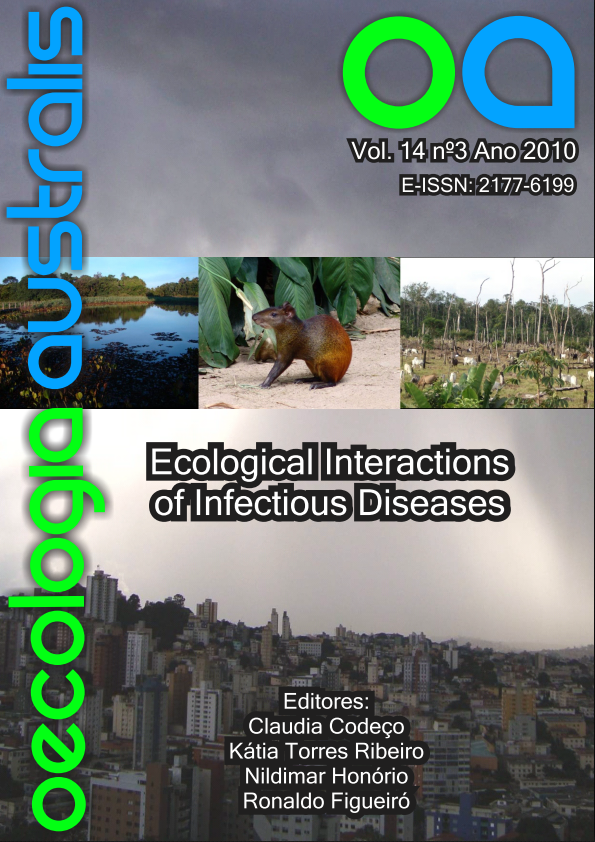OCORRÊNCIA DE PATÓGENOS EM CARNÍVOROS SELVAGENS BRASILEIROS E SUAS IMPLICAÇÕES PARA A CONSERVAÇÃO E SAÚDE PÚBLICA
Keywords:
Ordem Carnivora, medicina da conservação, zoonoses, epidemiologia, manejo de faunaAbstract
OCCURRENCE OF PATHOGENS IN BRAZILIAN WILD CARNIVORES AND ITS IMPLICATIONS FOR CONSERVATION AND PUBLIC HEALTH. Several outbreaks caused by pathogens caused declines in wild carnivore populations in the last decades. In addition to the negative impact to wild populations, there is a concern about the transmission of some of these agents to humans and domestic animals. In fact, environmental alterations have resulted in changes in the pathogen-host relation. Therefore, monitoring health of wild animals is considered an important component in programs for control or eradication of diseases and in the public and animal health politics and for the management and conservation of wild species. Considering the role of mammals of the order Carnivora in the trophic chain, they might be used as “sentinels”, working as strategic targets in programs of surveillance of important pathogens for public and animal health. We review in this paper case-studies of the main pathogens that occur in wild carnivores, emphasizing species of the Brazilian fauna. We also discuss laboratorial methods used in studies of exposure of Brazilian wild carnivores to pathogens, as well as strategies to minimize the impacts in these populations caused by that exposure, and methods for controlling the occurrence of zoonotic pathogens in wild carnivores.
Key-words: Order Carnivora; conservation medicine; zoonosis; epidemiology; fauna management.


